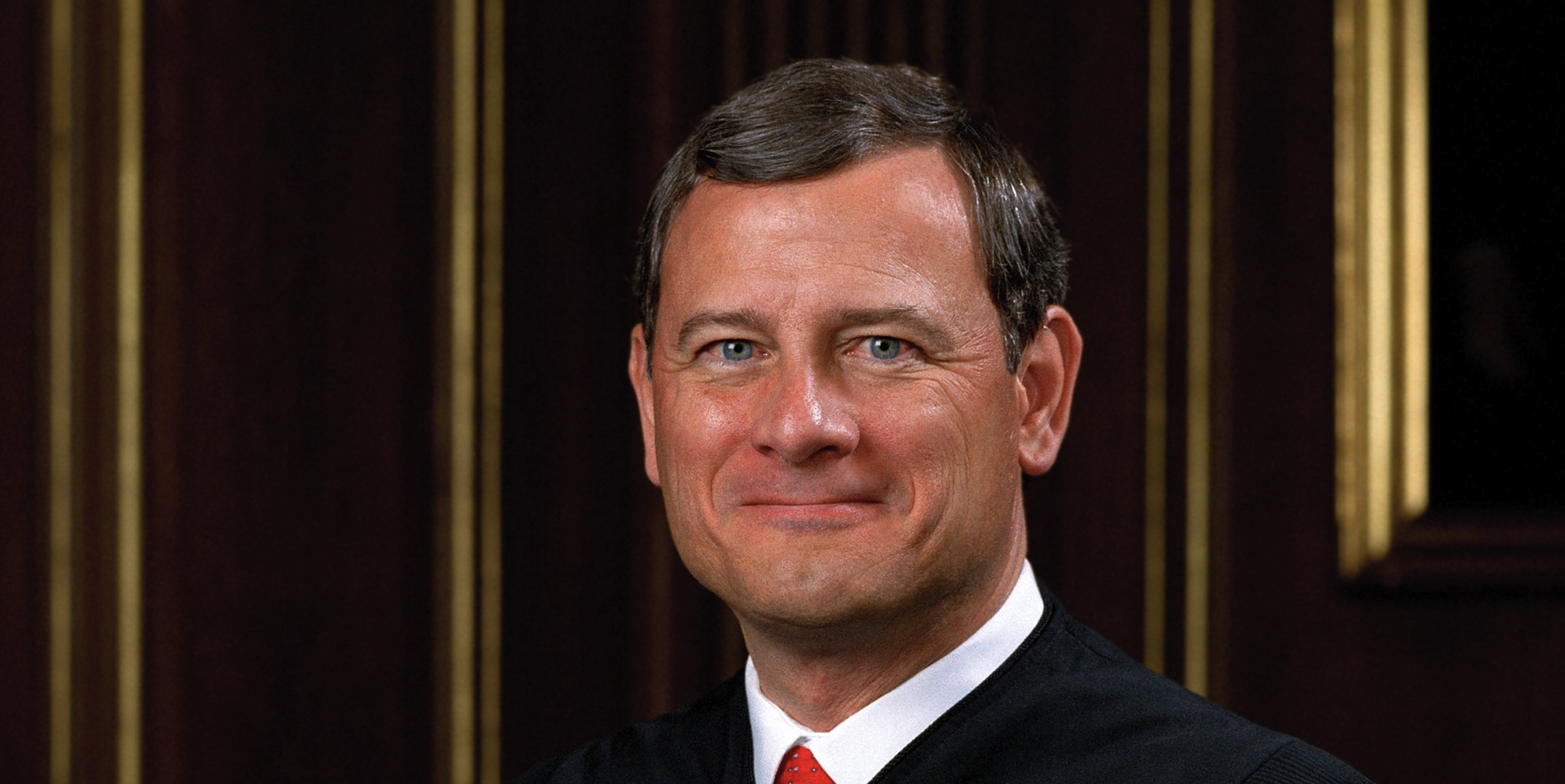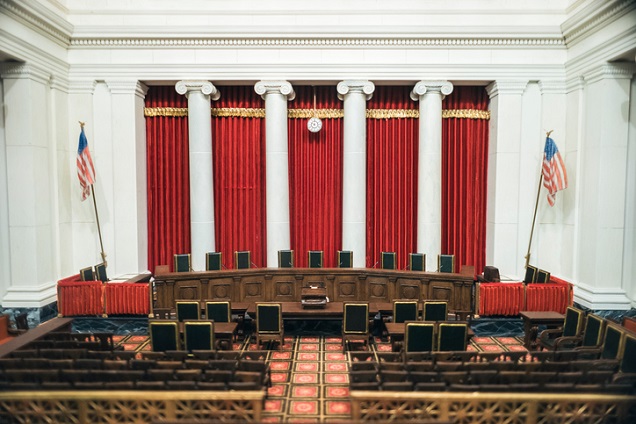
Law Professor Comes Up With Ultimate Joe Biden Strategy, And It Involves Taylor Swift
This would definitely be fun.

This would definitely be fun.

Now it transforms your document creation with natural language prompts.

Let's go ahead and admit that we have too many law school rankings.

Law professor gets high-profile reply.

* In the wake of Justice Anthony M. Kennedy's retirement, I predicted that Chief Justice John Roberts, a staunch institutionalist when it comes to the Supreme Court, would serve as a moderating influence at SCOTUS -- and so far that seems to be the case, with Adam Feldman noting a "a mild liberalizing over time" in JGR's jurisprudence. [Empirical SCOTUS] * Speaking of SCOTUS, it's high time for the Court to resolve the messy circuit split on email privacy under the Stored Communications Act, according to Orin Kerr. [Volokh Conspiracy / Reason] * The Trump Administration's new executive order about free speech on university campuses might harm rather than help the cause of academic freedom, as Paul Horwitz points out. [PrawfsBlawg] * Republicans aren't the only ones with purity tests for judicial nominations; Demand Justice, a left-wing group focused on the federal judiciary, has high standards for Democratic opposition to Trump nominees. [Bench Memos / National Review] * While you wait for the 2019 edition of Above the Law's law school rankings, check out the latest installment of the "revealed preferences" law school rankings, by C.J. Ryan and Brian L. Frye. [SSRN] * What's next for Kira Systems, a leader in the world of legal AI? Co-founder and CEO Noah Waisberg isn't resting on his laurels -- and he's putting that $50 million investment from last September to work. [Artificial Lawyer] * Fastcase continues to forge new partnerships -- and in its latest alliance, it will give its subscribers access to select titles from the American Bar Association (which, full disclosure, published my book (affiliate link) in 2014). [Dewey B Strategic] * If you'll be in New York this coming Wednesday, consider attending the inaugural Kenneth P. Thompson '92 Lecture on Race and Criminal Justice Reform at NYU Law School, focused on wrongful convictions and the roles of prosecutors and others in the criminal justice system. [NYU Law]

* It's baaack: partisan gerrymandering returns to the Supreme Court -- and in the view of veteran SCOTUS watcher Amy Howe, it's unlikely that the justices will duck the merits this time around. [SCOTUSblog] * Article III standing and the Stored Communications Act: Orin Kerr argues that it should be viewed through the lens of property rather than privacy. [Volokh Conspiracy / Reason] * Carrie Severino calls out Senate Democrats for their persistent -- and in her view, unjustified -- questioning of judicial nominees about their religious views and affiliations. [Bench Memos / National Review] * Joel Cohen identifies an interesting issue: should a defendant prejudiced by government misconduct in a case receive a break at sentencing? [Law & Crime] * Here are some highlights from Chief Justice John Roberts's year-end report on the federal judiciary, courtesy of Howard Wasserman. [PrawfsBlawg] * The new year is a time of beginnings -- and endings. Concurring Opinions, you will be missed. [Concurring Opinions]

Protégé™ General AI is fundamentally changing how legal professionals use AI in their everyday practice.

* Will Senator Susan Collins be persuaded by the campaign to get her to vote against Judge Brett Kavanaugh? Ed Whelan has his doubts. [Bench Memos / National Review] * Speaking of the Supreme Court, Adam Feldman identifies his "Supreme Court All-Stars" (2013-2017): the lawyers and law firms with the most arguments -- and wins -- before the high court. [Empirical SCOTUS] * Greg Lukianoff and Adam Goldstein offer tips for protecting freedom of speech on college campuses, inspired by a new book, The Coddling of the American Mind (affiliate link) by Greg Lukianoff and Jonathan Haidt. [Volokh Conspiracy / Reason] * Charles Glasser to news organizations, on the subject of self-policing: do better. [Daily Caller] * How should we evaluate the success of law firm mergers? Madhav Srinivasan of Hunton Andrews Kurth has some thoughts on methodology. [Law.com] * And Orin Kerr offers a proposal for applying the Fifth Amendment privilege against self-incrimination to compelled "decryption" of a locked phone, computer, or file. [SSRN] * Speaking of privacy, Google is taking some heat in Arizona over its alleged practice of recording location data of Android device owners even if they opted out of such tracking. [Washington Post] * When it comes to learning how to integrate technology into the delivery of legal services, American law firms can learn a thing or two from the Brits -- as the latest move by CMS suggests. [Artificial Lawyer]

* ARTICLES OF IMPEACHMENT FILED! Against Rod Rosenstein. Alternative headline: In stunning turn, Rep. Jim Jordan demands accountability as long as it's not for years of systematic sexual abuse. [Huffington Post] * That Shook Hardy attorney who argued that a woman got pregnant in a diabolical nine-month scheme to delay trial? Yeah, he's been suspended. [Daily Business Review] * The Fifth Circuit's James Ho isn't so much a judge as a political hack in a robe. That Orin Kerr Tweet from April was just the canary in the mine. [NPR] * Facebook GC Colin Stretch will pursue his lifelong passion of becoming the moderator of the Facebook Alumni Facebook Group. [Corporate Counsel] * Trump's ethics expert will also be leaving the job that he's ostensibly been performing. [The Hill] * Shareholder class actions are on the upswing this year. Gather ye rosebuds while ye don't have Judge Kavanaugh declaring Rule 23 a First Amendment violation. [National Law Journal] * Roy Moore sues PAC over negative campaign ads. Discovery should be fun. [Courthouse News Service] * Larry Nassar wants a new sentencing hearing. See, this is what happens when judges grandstand and rip up letters to advance their political career -- they just give these guys an in to try and futz with the sentence. [ESPN]

* What's it like to take the California bar exam as a 46-year-old law professor? Orin Kerr enlightens us. [Reason / Volokh Conspiracy] * Charles Glasser points out the dangers involved in holding a speaker responsible for actions taken by listeners. [Daily Caller] * In the Term that just ended, the Supreme Court tackled technology issues in a big way -- and the implications are far-reaching, as J.P. Schnapper-Casteras explains. [Take Care] * Elizabeth Slattery and I joined Laurence Colletti, guest host of the Lawyer 2 Lawyer podcast, to discuss Justice Anthony M. Kennedy's SCOTUS retirement and the nomination of his successor, Judge Brett Kavanaugh. [Legal Talk Network] * There has been a lot of speculation about how a Justice Brett Kavanaugh might move the Court to the right; Adam Feldman digs into the cases to make some educated guesses. [Empirical SCOTUS] * What lessons could losing the Court teach the Democrats? Here are some thoughts from Seth Lipsky and David Leonhardt. [New York Post via Instapundit] * And what lessons can lawyers learn from Judge Kavanaugh's excellent writing? Ross Guberman identifies five of them. [Legal Writing Pro] * Joel Cohen and Dale Degenshein explore what happens when a citizen "flips the bird" at the police (hint: it's not a good idea). [Law and Crime] * Congratulations to Thomson Reuters on the launch of Westlaw Edge, the latest version of its industry-leading legal research platform -- which boasts a slew of new, artificial-intelligence-driven features, helpfully explained by Jean O'Grady. [Dewey B Strategic] * And speaking of AI, congratulations to Fenwick & West on cutting the time for contract review in half, with the help of technology from Kira Systems. [Artificial Lawyer]

* It's checkout time at the Supreme Court, and courtroom correspondent Mark Walsh is ready to reveal what's in his shopping cart. [SCOTUSblog] * Being cited by the Supreme Court is usually something to boast about -- but not always, as Adam Feldman notes in this thoughtful analysis of how much oral arguments matter. [Empirical SCOTUS] * Will Baude breaks down the Court's intriguing debate over stare decisis in South Dakota v. Wayfair. [PrawfsBlawg] * Joel Cohen looks at why the federal judiciary gets better treatment from the press than the other two branches of government -- and whether the differential is justified. [The Hill] * Orin Kerr identifies an interesting issue: if a police officer uses Google Translate to try and request consent to search from a non-English speaker in that person's own language, is the consent valid if Google Translate botched the translation? [Volokh Conspiracy / Reason] * There's a long and bipartisan tradition of... the federal government spying on reporters, as Charles Glasser explains. [Daily Caller] * Speaking of the media, Jean O'Grady points out a helpful new resource from CQ for consumers of news, along with tips for how to tell whether or not a story is "fake news." [Dewey B Strategic] * If reforms come to university boardrooms, let's hope they include law schools as well. [ProfessorBainbridge via Instapundit] * An interesting new use of voice-activated technology, courtesy of Wolters Kluwer: getting insights into federal tax law. [Artificial Lawyer] * If you'll be in New York on Tuesday, July 17, raise your glass with fellow young lawyers, summer associates, and law students, at the UJA's Summer Law Happy Hour. [UJA Federation of New York]

Get five practical tips to spot cash flow red flags early, speed up payments, track spending in real time, and build stronger client trust through clear, transparent billing—download the ebook.

* Under cover of a natural disaster, President Donald Trump decided to pardon former Arizona sheriff Joe Arpaio, who was found guilty of criminal contempt after ignoring a federal judge's order. Trump, who has shown contempt for judges since the start of his campaign, now seems to be using his "weaponized pardon power" to circumvent the powers of the judiciary. [New York Times] * Speaking of Hurricane Harvey, we know that many lawyers, law students, and law professors in Texas have been and continue to be affected by the devastating after effects of the storm. How has your firm or your law school handled the destruction and historic flooding? Please get in touch with us via email, text message (646-820-8477), or tweet (@atlblog) to let us know. [Above the Law] * Getting back to Joe Arpaio's pardon, lawyers, former government officials, and current lawmakers of all stripes have spoken out against the president's unconventional action. Perhaps our favorite comment of all came from Professor Orin Kerr of USC Gould School of Law: "Trump shows his love of the Constitution by pardoning a man who refused to stop violating it." [Law.com] * Special Counsel Robert Mueller is reportedly investigating whether former national security adviser Michael Flynn played any kind of a role in obtaining Hillary Clinton's emails from Russian hackers. If he did have something to do with it, Flynn may be more concerned about Clinton's emails right now than the average Trump voter was in the lead-up to the election. [Wall Street Journal] * Thanks to President Trump, Irell & Manella now stands to lose one of its top rainmakers. In a Friday announcement, patent litigator Andrei Iancu, a partner at the firm, was nominated to become the next Director of the U.S. Patent and Trademark Office and Under Secretary of Commerce for Intellectual Property. We wonder how long it'll take for him to be confirmed.[Am Law Daily]

content/uploads/2017/02/Philando-Castile-300x199.jpg" alt="" width="300" height="199" class="size-medium wp-image-454758" /> Generated by IJG JPEG Library[/caption] * Cop found not guilty for killing Philando Castile because it's simply not illegal for cops to kill black men. Maybe this will just sag, like a heavy load. Or maybe explode. [NPR] * Professor Orin Kerr thinks that self-driving cars will change police strategies. Maybe, but cops will still find a way to murder unarmed black men for automated "menacing" driving or something. [Volokh Conspiracy] * Hero Pop shows these men of will what will really is. And Trumpsters are "heartbroken." https://twitter.com/JackPosobiec/status/875592455365599234 * David Lat was on The Takeaway today to talk about the Avengers-level team of witch hunters Robert Mueller has assembled. [The Takeaway] * Dreamers can stay, their parents must go. This passes for a "victory" in these times. [ABA Journal] * There's a scene in Star Trek 3 where Captain Kirk asks Klingon Christopher Lloyd to beam up teenage Spock. The Klingon says no, Kirk asks why, and Lloyd says, "Because you wish it!" Trump's Cuba reversal, and general political strategy, seems to follow the same logic as Klingon Christopher Lloyd. If Captain Obama wished it, the Trump does not do it. [New York Times] * Breitbart is covering and promoting a protest in response to the Congressional shooting. A protest of -- I'm not making this up -- a protest of CNN. Guns don't kill people, fact-based journalism kills people. [Breitbart]

* Time to nerd out! We'll start with Senator Dianne Feinstein (D-CA) firing a shot across on the bow on blue slips. [Politico via How Appealing] * Speaking of judicial nominees, Professor Stephanos Bibas, nominated to the Third Circuit, has a long, long paper trail -- including not just lots of law review articles, but letters to the editor from when he was a college kid. [CA3blog] * Who knew that singer John Legend was a legal nerd? He's all about "the challenge and the opportunity of federalism," as Chris Geidner reports. [BuzzFeed News] * It's time for the courts to recognize that the Lemon test "is really and truly dead," according to Daniel Blomberg of Becket. [Bench Memos / National Review] * Meanwhile, Professor Orin Kerr identifies "an interesting question worth flagging for the Fourth Amendment nerds" out there. [Washington Post] * Finally, Fifth Circuit guru David Coale has found something even wonkier than the Rooker-Feldman doctrine. [600 Camp]

Plus colorful comments from Judge Kozinski on the death penalty, the First Amendment, and more.

* "How to Con Black Law Students: A Case Study," by our very own Elie Mystal. [New York Times] * Professor Rick Hasen responds to Judge Alex Kozinski's colorful dissental in the travel-ban litigation. [Slate] * Speaking of the Ninth Circuit, should it be broken up? Prominent appellate lawyer Ben Feuer makes the case against. [Los Angeles Times] * Professor Ilya Somin hopes senators ask Judge Gorsuch these questions at tomorrow's hearing. [Volokh Conspiracy] * But his co-blogger, Professor Orin Kerr, isn't holding his breath for revealing answers. [Volokh Conspiracy] * Walt Pavlo wonders: are former prosecutors from the S.D.N.Y. padding their résumés? [Forbes] * Almost three years have passed since the death of Eric Garner -- and we still have many more questions than answers. [CityLand / New York Law School] * Jane Genova: What can legal media and marketers learn from Jimmy Breslin? [Law And More]